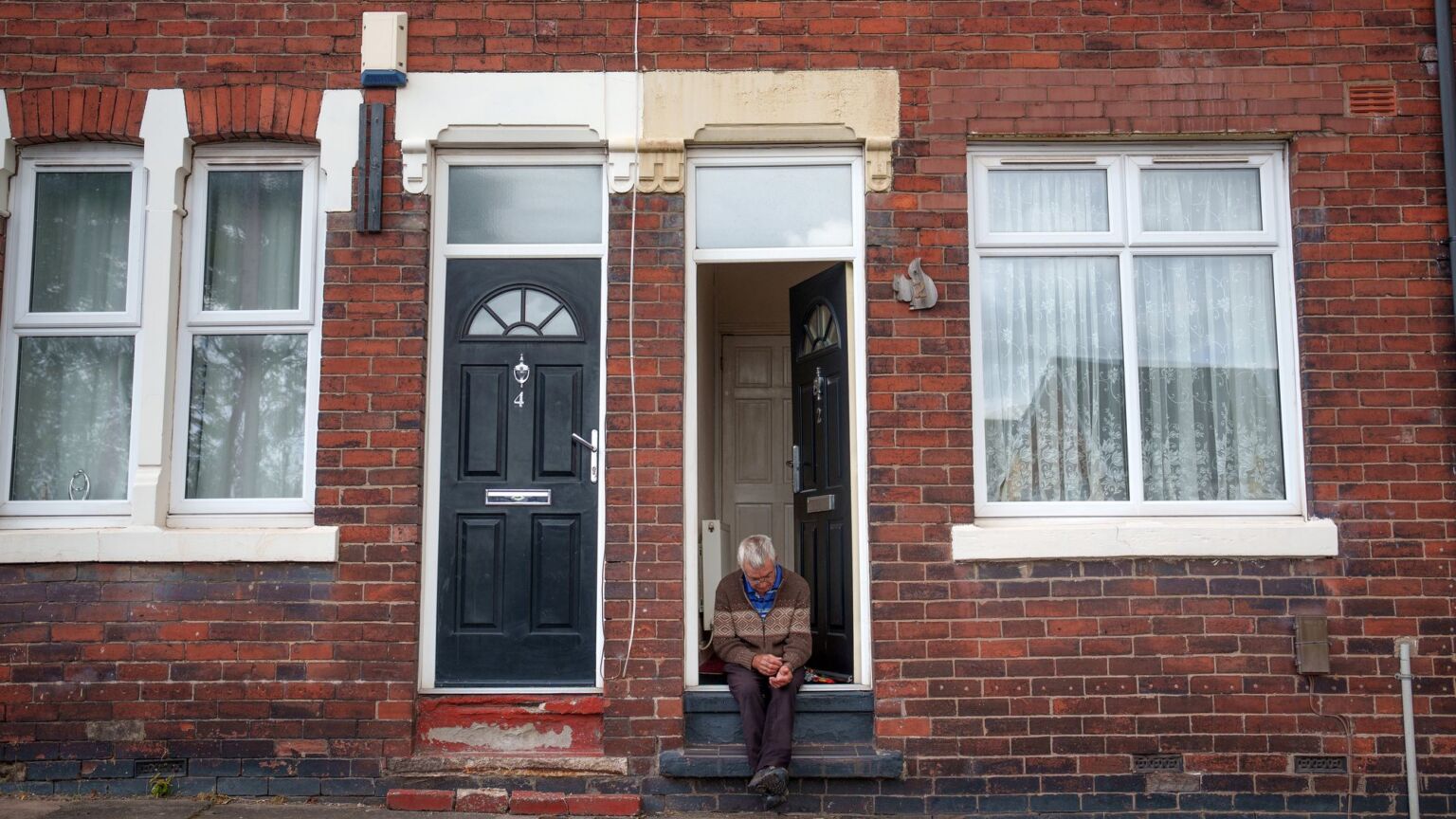Britain is dying of loneliness
As community and familial bonds fray, growing old is becoming more isolated – and more dangerous.

Want unlimited, ad-free access? Become a spiked supporter.
For the first time in more than a century, life expectancy in Britain has stalled. In many poorer communities, it is actually falling. In north-east Lincolnshire, recent data suggests life expectancy has dropped by more than eight years in just a decade. Commentators still rehearse well-worn explanations about poor lifestyle choices. But a more brutal, distinctly 21st-century cause is increasingly notable – that is, the isolation and loneliness that now blight older people’s lives.
spiked has long lamented the collapse of public life – the loss of community spirit, the retreat from collective life into private, atomised existence. Now, the human cost of this is becoming harder to ignore. The predicament for many older, working-class people is not only a lack of public bonds, but private connections as well. Older people are more likely to experience privacy without intimacy and independence without connection. These are profound losses. Without the bonds of marriage, family or community, millions of older people are left to fend for themselves in lonely flats, enduring the corrosive effects of neglect long before they die.
Professor Michael Marmot put it plainly: ‘Social isolation kills: it’s as predictive as smoking for life expectancy in people 50 and above.’ You don’t need to be a doctor to see why. A spouse or family member notices when you lose weight, urges you to see a GP, calls an ambulance when you collapse. When there’s no one there, the smallest medical emergency can become a death sentence. Here, the personal really is political. And in this case, it can be fatal.
Tragedies like the death of Kenneth Battersby in Skegness and his two-year-old son, Bronson, last year expose this reality in all its cruelty. Kenneth died of a heart attack at home. Bronson, left alone, died of starvation. Or consider Doreen Chappell, an elderly disabled woman who, during the pandemic, succumbed to Covid-19 without family by her side – the result of a deadly combination of social distancing, bureaucratic indifference and the atomisation of care.
These are not isolated cases. A 2023 study found a sharp rise in so-called ‘lonely deaths’, the British variant of Japan’s infamous kodokushi phenomenon, when people die alone and are not discovered for some time. This is set to get worse, too. As of 2023, 8.4million people in the UK are living alone. When it comes to over-50s, a quarter of them (around 5million) live alone. Among those over 65, the figures are even starker. Half of all people living alone in Britain today are pensioners. And the number of men aged over 65 living alone has surged by 66 per cent over the past two decades.
What’s new is how the collapse of social bonds is mirrored by a collapse in private life, too. It’s not just that pubs, clubs and churches are vanishing – it’s that marriage, family and long-term relationships are weakening at the same time. In the past, public and private solidarities buttressed one another. A trip to the pub, Sunday lunch with the family, a visit from the neighbours – all these rituals reinforced belonging, connection and responsibility. Today, both spheres are crumbling.
Nowhere is this clearer than in the death of the British pub. Over the past 20 years, more than 13,000 pubs have closed. These weren’t just places to drink. They were informal hubs of sociability, especially for older men. Their loss has stripped countless communities of their only remaining third space – the place outside work and home where you could meet, talk and feel part of something larger. In their place? A handful of soulless coffee chains and shopping centres, spaces of pure consumption rather than community. The war on pubs was often justified on public-health grounds, but the consequence has been a more atomised society, contributing to worsening health outcomes for the elderly.
This is the true cost of Britain’s cultural shift towards hyper-individualism. We’ve dismantled the institutions that held society together and celebrated our ‘freedom’ from obligation. But the result is not liberation – it’s abandonment.
If we’re serious about arresting Britain’s decline, not just in life expectancy, but also in the quality of life itself, we need to revalorise solidarity, duty and commitment. That means more than a few extra pounds for social-care budgets. It means rethinking marriage, family, friendship and public life. It means standing up unapologetically for the institutions and traditions that bind people together.
Neil Davenport is a writer based in London.
£1 a month for 3 months
You’ve hit your monthly free article limit.
Support spiked and get unlimited access.
Support spiked – £1 a month for 3 months
spiked is funded by readers like you. Only 0.1% of regular readers currently support us. If just 1% did, we could grow our team and step up the fight for free speech and democracy.
Become a spiked supporter and enjoy unlimited, ad-free access, bonus content and exclusive events – while helping to keep independent journalism alive.
———————————————————————————————————————————–
Exclusive January offer: join today for £1 a month for 3 months. Then £5 a month, cancel anytime.
———————————————————————————————————————————–
Monthly support makes the biggest difference. Thank you.









Comments
Want to join the conversation?
Only spiked supporters and patrons, who donate regularly to us, can comment on our articles.